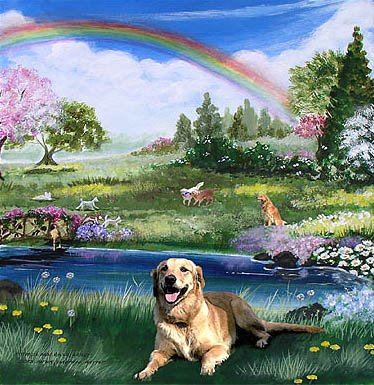
THE LOST INHERITANCE.
AN elderly man was standing by the roadside gazing earnestly at a homestead. His dress was shabby, his shoulders were bent forward, a wistful longing was in his face, a gloomy shadow darkened' his eyes, and he seemed absorbed in the deepest thought.
The farmland, which attracted his attention, was productive, and delightfully situated. On a slight elevation of ground that rose gradually before him stood an old-fashioned farmhouse. The roof sloped
down over the front, under which there was a spacious piazza. Everything about the place was trim, neat, and thrifty.
Beyond the house was a beautiful landscape,—hill and sward and mountain and dell, with streams and a lake in the distance.
The stranger who was gazing so intently- on the pleasant scene seemed lost in thought. There was something fascinating to him in every tree and flower. When he turned away, the tears were coursing down his face. It may seem strange that so much of beauty should excite emotions of grief.
He had gone but a short distance when a neighbor met him, and instantly recognized him as a former acquaintance.
"Why, Randolph," said he, extending his hand, "how do you do? I'm glad to see you. It really seems as if you had a right here. Been to look at the old place, I suppose?"
Tho’ gloom still rested on Walter Randolph's face as he answered slowly: "Yes, I was on the main road, and thought I would walk down and take one more look. You see, they've got it away from me entirely. They have the family burying-ground, too; but that, as yet, is undisturbed.
Father and mother lie there, my two brothers and my sister, and three of my children. I could see the spot where they sleep on the hillock beyond.
I would have gone in and sat down by the graves again, but something seemed to tell me that I was a stranger. These settlers have got it all, all, and"—
"But, Randolph, you can't blame the present owners. They bought, the property of the mortgager; and he, as you must know, had to bid it in at the foreclosure sale. I can't see that anybody is to blame but yourself. Your brothers and sister died, and you were the only surviving heir. Your inheritance was a splendid one. You had lands and money enough. But, for some reason, you let the farm run down, the house go unrepaired, the fences get out of shape, and the barns have broken doors and dangling shutters. Besides, your wife and your two remaining children went away; and then you left, and the property had no one to take care of it. Now, won't you let me ask you what was the cause of all this?"
Randolph was deeply moved; but, after a pause, he answered:—
"I will tell you. I had, as you have said, a splendid property, a farm of two hundred and fifty acres, with good house, barns, implements, and everything in running order. I had also a kind father and mother, who pointed out to me early in life the right way. But, somehow, I fell into the habit of stopping at the village store, and I used to go over to the Shades saloon. Things were more lively there. I became a drinker, a gambler, and a swearer. The attractions of the Shades were more to me than home or family; and slowly but surely, though I knew it not, I was drinking up my inheritance. When my third child died, my wife's reason was impaired, and in order to provide an asylum for her, I mortgaged my property; but I am ashamed to say that I squandered the money and neglected her. She is still insane. My remaining children are—are—I know not where.
My life is a ruin! My inheritance is lost!"
He turned from the neighbor; and as he went away, every beat of his heart seemed to echo,
"Lost! Lost! Lost!"
There is a greater inheritance that may be lost.
The dreadful words, "Depart from me," may be spoken. And then—oh, sad departure!--it may be added, "These shall go away into everlasting punishment."
Well-Spring.